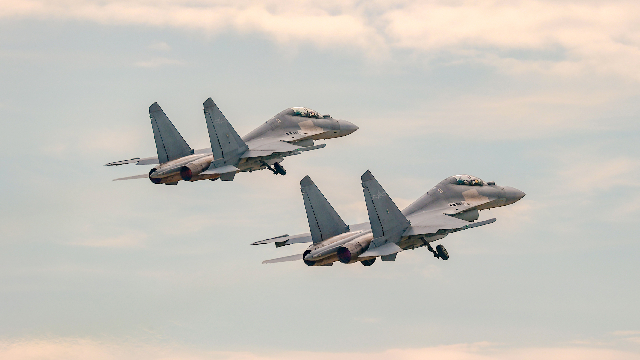By Nie Shuyi
February 24 marks the second anniversary of the escalating Ukraine crisis. The two-year crisis has not only caused heavy casualties on both sides of the conflict but has also had a profound impact on the geopolitical, economic, and security situations in Europe and even the world. Currently, Russia and Ukraine are caught in a stalemate on the battlefield and at daggers drawn in politics. What's worse, the US-led Western countries continue to fan the flames, and there is still no sign of hope for peace.
Two years of conflict have caused devastating losses in the region. Ukrainian President Volodymyr Zelenskyy stated on February 25 that 31,000 Ukrainian soldiers have died since the outbreak of the conflict. According to UNHCR, more than four million people are currently displaced within Ukraine, with an additional six million becoming refugees outside of the country. Ukraine's infrastructure, cities and villages have been severely damaged. Basic utilities such as energy, water supply, and transportation, as well as essential services like healthcare and education, have been largely unavailable in many regions. The general public has been deprived of the fundamental services they rely on for survival. The right to health and even the right to life are under threat. Additionally, the conflict has extended its negative impact to areas such as food, energy security, and the environment.
Two years of conflict have dealt a heavy blow to the European economy. Last year, Europe's economy was trapped in slow growth due to soaring energy prices, high inflation, substantial losses to businesses, shrinking real wages, and declining purchasing power under the shadow of the Russia-Ukraine conflict and a global economic downturn. Germany, the "engine" of Europe's economy, has been severely affected and experienced negative growth in 2023, making it the only European power with a contracting economy. On February 21, Germany's Economy Minister Robert Habeck revised his economic growth forecast for 2024 from 1.3% to 0.2%. According to a report by the German Institute for Economic Research, Germany's economy has lost about EUR 240 billion in the past two years, and German citizens have collectively reduced consumption by EUR 400 billion in 2022 and 2023.
The conflict has far-reaching implications for the already unequal transatlantic partnership between the US and Europe. The objective of European integration is to achieve strategic autonomy. However, European strategic autonomy has faced unprecedented challenges since the escalation of the Ukraine crisis. Taking advantage of the Ukraine crisis, the US has strengthened its political, military, and economic control over Europe, further binding Europe to its agenda and throttling European strategic autonomy. In the view of US politicians, it is in its best interests to weaken Europe and make it dependent on the US. The US sees its "allies" and "partners" as mere pawns to serve its hegemonic strategy. As stated by Sevim Dagdelen, a member of the German Bundestag, "What the US wants is not an alliance but a loyal servant."
In its third year, the Ukraine crisis has become increasingly prolonged, complicated, and extensive. It is regrettable that this avoidable tragedy has reached its current state, which deserves deep reflection. History has proven that the final solution of any conflict lies in returning to the negotiation table. The ins and outs, rights and wrongs of this crisis will be judged by history, and the most pressing matter now is to restore peace. Unfortunately, as the current situation stands, the US-led Western countries still appear unwilling to cease adding fuel to the fire.
The prolonged, complex, and escalating Ukraine crisis contradicts the common interests of the international community. As long as there is a glimpse of hope for peace, there should be continuous efforts to promote it. If peace talks had commenced a day earlier, losses would have been reduced. Lose-lose dynamics became a keyword during the recent Munich Security Conference, reflecting the apprehension and unease of the international community. The US and Europe should genuinely push for a resolution to the crisis, putting an end to a conflict that should never have occurred.









